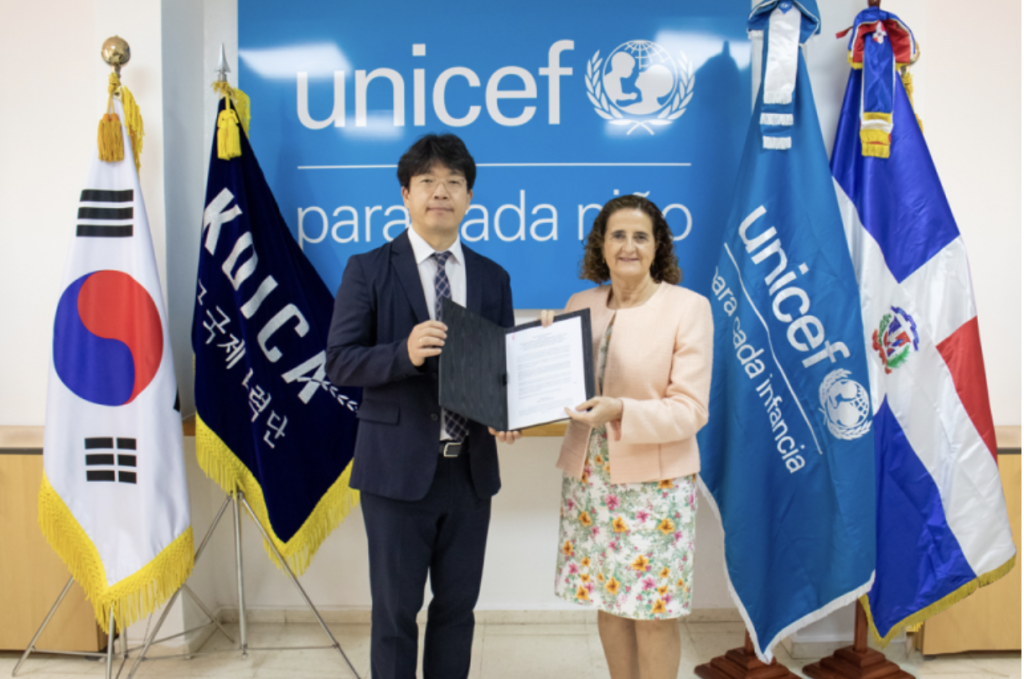
The Korean International Cooperation Agency (Koica) and the United Nations Children’s Fund (Unicef) have agreed to back a new program for preventing teenage pregnancies and early unions. The Korean government has agreed to finance and support the project “Changing Gender Norms for the Prevention of Violence and Early Unions.”
The agreement seeks to reach out to 10,000 teenagers ages 12 to 17 years from vulnerable groups to promote their empowerment and the rejection of early unions. The program calls for creating awareness in 126,000 high school students, training and sensitization of 5,500 public officials, 10,450 young adult men and 30,000 fathers, mothers and community leaders to reject early unions.
At the announcement meeting, Koica’s director in the Dominican Republic, Joonsung Park, said: “The project is part of Koica’s efforts to contribute to the development of the Dominican Republic through comprehensive education and empowerment of women, particularly with regard to the problem of teenage pregnancy, closely associated with early unions, which the Korean government has been addressing since 2006. Through this collaboration with UNICEF and Dominican partner institutions, we hope to provide more opportunities for girls to achieve a better quality of life.”
Unicef representative, Rosa Elcarte pointed out that the country has improved its early unions figures a little, and these are no longer the highest in Latin America and the Caribbean. Yet, she says the statistics continue to be well above the average for the region. 32% of girls and adolescents join or marry before 18, according to data from the Enhogar MICS 2019.
Elcarte explained the agreement will support the implementation of the actions, and the coordination of the same, contemplated in the “Policy of prevention and attention to early unions and teenage pregnancy,” which was launched by President Luis Abinader and First Lady Raquel Arbaje, in December 2021.
Early unions are a harmful practice for girls and adolescents that violate their rights. Studies carried out locally by Unicef and the World Bank show that early unions promote school dropout, teenage pregnancy, having more children. These young women, thereafter, have only access to the least desirable work, becoming poorer. The young women also suffer more violence from their partners. In short, the pregnancies and early unions prevent them from developing their life plans.
One of the main causes of early unions are social gender norms and cultural and behavioral patterns that promote and socially normalize the early union of a girl or adolescent with an older adult, as almost the only life plan for that girl. The project highlights the importance of promoting changes in social norms.
Read more in Spanish:
Unicef
Unicef
27 July 2022

